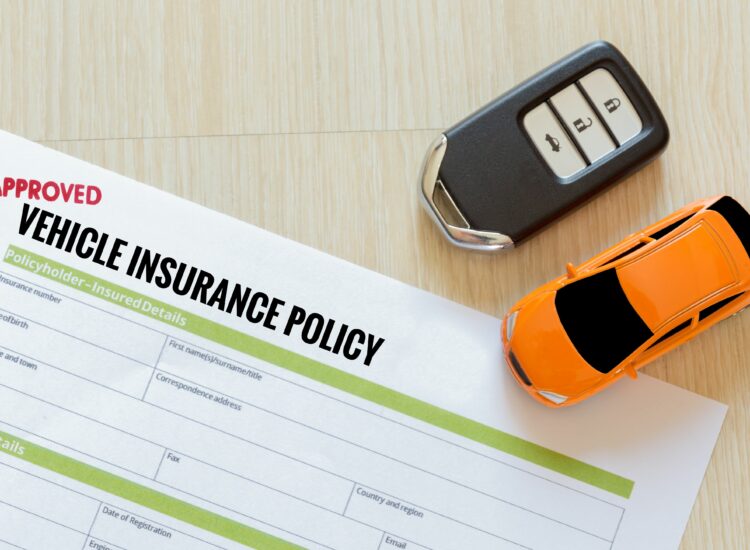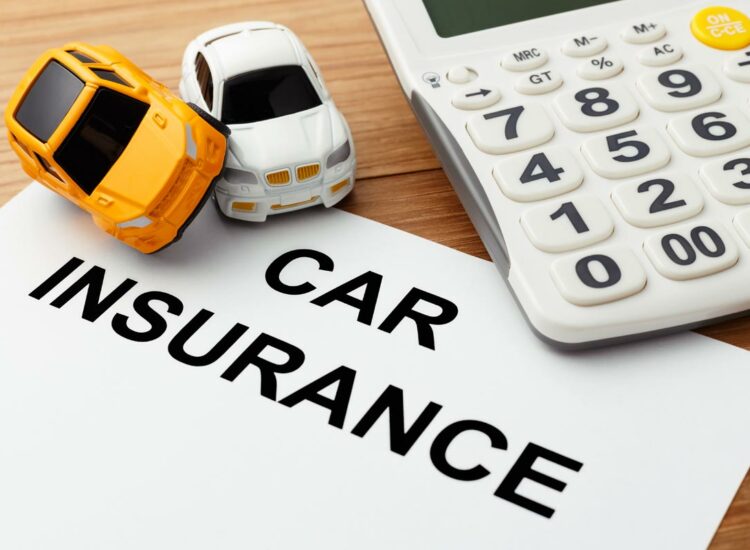Step-by-Step Guide to Finding the Best Auto Insurance Quote and Saving Money
Driving a car offers freedom and convenience, but it also comes with responsibilities, one of the most important being securing adequate auto insurance. However, navigating the world of auto insurance can often feel overwhelming, especially when it comes to understanding the cost and finding the right coverage. This is where the concept of obtaining a “quote for auto insurance” becomes paramount. A quote is an estimated cost of your insurance premium based on various factors. By actively seeking and comparing multiple quotes, you can ensure you’re getting the best possible deal without compromising on the protection you need. This in-depth guide will walk you through the importance of comparing quotes, the key elements that influence your premium, and how to effectively obtain and compare quotes to make an informed decision.
Toc

The Importance of Getting Multiple Auto Insurance Quotes
When it comes to auto insurance, the first quote you receive should rarely be the last. Just like shopping for any other significant purchase, comparing multiple quotes is crucial for securing the most favorable terms and rates. Settling for the first offer might mean leaving money on the table or missing out on coverage options that better suit your specific circumstances.
Why Comparing Quotes Saves You Money
The most immediate benefit of comparing auto insurance quotes is the potential for significant cost savings. Insurance companies each have their own formulas and algorithms for calculating premiums, meaning that the price for the exact same coverage can vary considerably from one insurer to another. By obtaining quotes from several different companies, you can directly compare their rates and identify the most affordable option for your budget. Even small differences in premiums can add up to substantial savings over the course of a year or multiple years. Don’t assume that well-known or heavily advertised insurers will automatically offer the best prices. Smaller, regional insurers or online-only companies might offer more competitive rates that you would otherwise miss out on if you didn’t compare.
Understanding Coverage Options Through Quotes
Beyond just the price, obtaining multiple quotes also allows you to thoroughly examine the different coverage options offered by various insurers. While the core types of coverage like liability, collision, and comprehensive are fairly standard, the specifics within these categories can vary. For instance, the limits of liability coverage, the deductibles for collision and comprehensive, and the availability of additional coverages like rental car reimbursement or roadside assistance can differ between policies. By reviewing multiple quotes, you gain a better understanding of the range of protection available and can tailor your choices to meet your unique needs and risk tolerance. You might discover that one company offers more robust standard coverage or more affordable options for add-ons that are important to you.
The Role of Quotes in Finding the Right Insurer
The process of getting a quote for auto insurance isn’t solely about finding the cheapest price. It also provides an opportunity to assess the overall customer experience and reputation of different insurance companies. While you’re interacting with their online platforms or speaking with their representatives to obtain a quote, you can gauge their responsiveness, professionalism, and clarity in explaining their offerings. This initial interaction can be indicative of the service you might expect if you were to become a policyholder and need to file a claim. Furthermore, comparing quotes might lead you to discover insurers with better customer satisfaction ratings or more convenient claims processes. Ultimately, the goal is to find a balance between an affordable premium and reliable coverage from a reputable insurer that will be there for you when you need them most.
1. https://nordics.vn/car/mmoga-slash-your-car-insurance-costs-the-ultimate-savings-guide/
2. https://nordics.vn/car/mmoga-auto-insurance-explained-how-to-stay-safe-and-save-money/
Key Factors That Influence Your Auto Insurance Quote
Understanding the factors that insurance companies consider when generating a quote for auto insurance is crucial for anticipating potential costs and potentially taking steps to lower your premium. These factors generally fall into three main categories: vehicle-related, driver-specific, and coverage choices.
The specifics of the vehicle you intend to insure play a significant role in determining your auto insurance quote. The make and model of your car are key considerations. Insurers analyze historical data on claims and repair costs for different types of vehicles. For example, high-performance sports cars or luxury vehicles tend to have higher premiums due to their increased risk of accidents and higher repair expenses. Conversely, safer, more practical vehicles might attract lower rates. The age of your vehicle also matters. Newer vehicles might have higher premiums due to their higher replacement value, while older vehicles might cost less to insure in terms of collision and comprehensive coverage, but could have higher liability risk depending on their condition. The safety features equipped in your car can also influence your quote. Features like anti-lock brakes, airbags, and anti-theft systems can potentially lead to discounts. Finally, the value of your vehicle directly impacts the cost of comprehensive and collision coverage, as these coverages are designed to protect against damage or loss of the vehicle itself.
Driver-Specific Factors That Determine Your Premium
Your personal driving history and characteristics are heavily weighed when calculating your auto insurance quote. Your driving record, including any past accidents, traffic violations (like speeding tickets), or DUI/DWI convictions, is one of the most influential factors. A clean driving record indicates a lower risk of future claims and typically results in lower premiums. Conversely, a history of incidents suggests a higher risk and will likely lead to increased rates. Your age and driving experience are also significant. Younger, less experienced drivers (especially those under 25) are statistically more likely to be involved in accidents and therefore often face higher premiums. As drivers gain more experience and maintain a clean record, their rates tend to decrease. Your gender and marital status can also sometimes play a role in determining your quote, although this is becoming less prevalent in some regions. Statistically, men might pay slightly more than women in certain age groups, and married individuals might receive slightly lower rates than single individuals. Your credit score is another factor that many insurance companies use to assess risk. A higher credit score often correlates with a lower likelihood of filing claims, potentially leading to lower premiums in some states. Even your occupation can sometimes have a minor impact on your quote, although this is less common. Finally, the annual mileage you drive and how you use your vehicle (e.g., commuting, personal use only) can affect your premium. Driving fewer miles generally translates to a lower risk of accidents and thus lower insurance costs.
Coverage Choices and Their Impact on Your Quote
The specific coverage options and limits you select will directly influence your auto insurance quote. As previously mentioned, liability coverage is typically mandatory and its limits significantly impact your premium. Higher liability limits provide greater financial protection but come with a higher cost. Collision and comprehensive coverage are optional, but adding them will increase your premium. The deductibles you choose for these coverages also have an inverse relationship with your premium. A lower deductible means you pay less out-of-pocket in case of a claim, but your premium will be higher. Conversely, a higher deductible lowers your premium but requires you to pay more if you need to use the coverage. Adding optional coverages like personal injury protection (PIP), medical payments coverage, uninsured/underinsured motorist coverage, rental reimbursement, and roadside assistance will all contribute to an increase in your overall premium. It’s important to carefully consider your needs and budget when selecting these options and to understand how each choice affects your final quote.
How to Effectively Obtain and Compare Auto Insurance Quotes
Now that you understand the importance of comparing quotes and the factors that influence them, let’s delve into the practical steps of how to effectively obtain and compare quotes for auto insurance.

Where to Get Auto Insurance Quotes: Online vs. Agents
There are two primary avenues for obtaining auto insurance quotes: online directly from insurance companies or through independent insurance agents. Online quotes offer convenience and speed. Most major insurance companies have websites where you can input your information and receive an instant quote. There are also numerous comparison websites that allow you to enter your details once and receive quotes from multiple insurers simultaneously. This can be a quick way to get a broad overview of potential rates. However, online quotes might not always capture all the nuances of your specific situation or potential discounts you might be eligible for.
1. https://nordics.vn/car/mmoga-how-to-find-the-best-auto-insurance-quote-and-save-big/
4. https://nordics.vn/car/mmoga-auto-insurance-explained-how-to-stay-safe-and-save-money/
5. https://nordics.vn/car/mmoga-slash-your-car-insurance-costs-the-ultimate-savings-guide/
Independent insurance agents, on the other hand, work with multiple insurance companies. They can provide personalized advice, help you navigate complex coverage options, and potentially find discounts you might not be aware of. They take the time to understand your individual needs and can tailor a policy that best suits you. While it might take slightly longer to get a quote through an agent, the personalized service and expertise can be invaluable, especially if you have a more complex driving history or coverage needs. Some individuals also prefer the human interaction and support that an agent can offer, particularly when it comes to filing a claim. Ultimately, the best approach might involve a combination of both methods – getting some initial online quotes to get a general idea of pricing and then consulting with an agent to explore more tailored options and ensure you haven’t missed any potential savings.
Information You’ll Need to Get an Accurate Quote
To receive an accurate auto insurance quote, you’ll need to provide insurance companies with specific information about yourself, your vehicle, and your desired coverage. Be prepared to provide your personal information, including your full name, date of birth, address, and driver’s license number. You’ll also need to provide information about all other drivers in your household. For your vehicle, you’ll need the make, model, year, Vehicle Identification Number (VIN), and details about any modifications or aftermarket equipment. You’ll also be asked about how you use your vehicle and your estimated annual mileage. Regarding your driving history, you’ll need to disclose any past accidents, traffic violations, or claims you’ve made in recent years. Finally, you’ll need to specify the types and limits of coverage you’re interested in, as well as your desired deductibles. Providing accurate and complete information is crucial for receiving a realistic and reliable quote. Withholding information or providing inaccurate details could lead to issues with your coverage or claims in the future.
Tips for Comparing Quotes and Choosing the Best Policy
Once you’ve gathered several auto insurance quotes, the next step is to compare them effectively and choose the policy that best meets your needs and budget. Don’t just focus on the price. While cost is certainly an important factor, it shouldn’t be the only one you consider. Carefully examine the coverage details of each quote. Ensure that you’re comparing the same types of coverage and liability limits across different insurers. Pay attention to the deductibles for collision and comprehensive coverage and understand how they will impact your out-of-pocket expenses in case of a claim. Look for any discounts that you might be eligible for, such as discounts for safe driving, multiple vehicles, bundling your auto insurance with homeowners or renters insurance, or being a student or member of certain organizations.
Consider the reputation and customer service of the insurance companies you’re comparing. Check online reviews and ratings to get a sense of other policyholders’ experiences with claims handling and customer support. A slightly higher premium might be worth it if it means having peace of mind with an insurer known for its excellent service. Understand the exclusions of each policy. Make sure you are aware of what situations or types of damage are not covered by the policy. Finally, don’t hesitate to ask questions. If anything in the quote or policy is unclear, reach out to the insurance company or agent for clarification. Taking the time to thoroughly compare quotes and understand the details of each policy will help you make a confident and informed decision, ensuring you have the right protection at the best possible price.
















